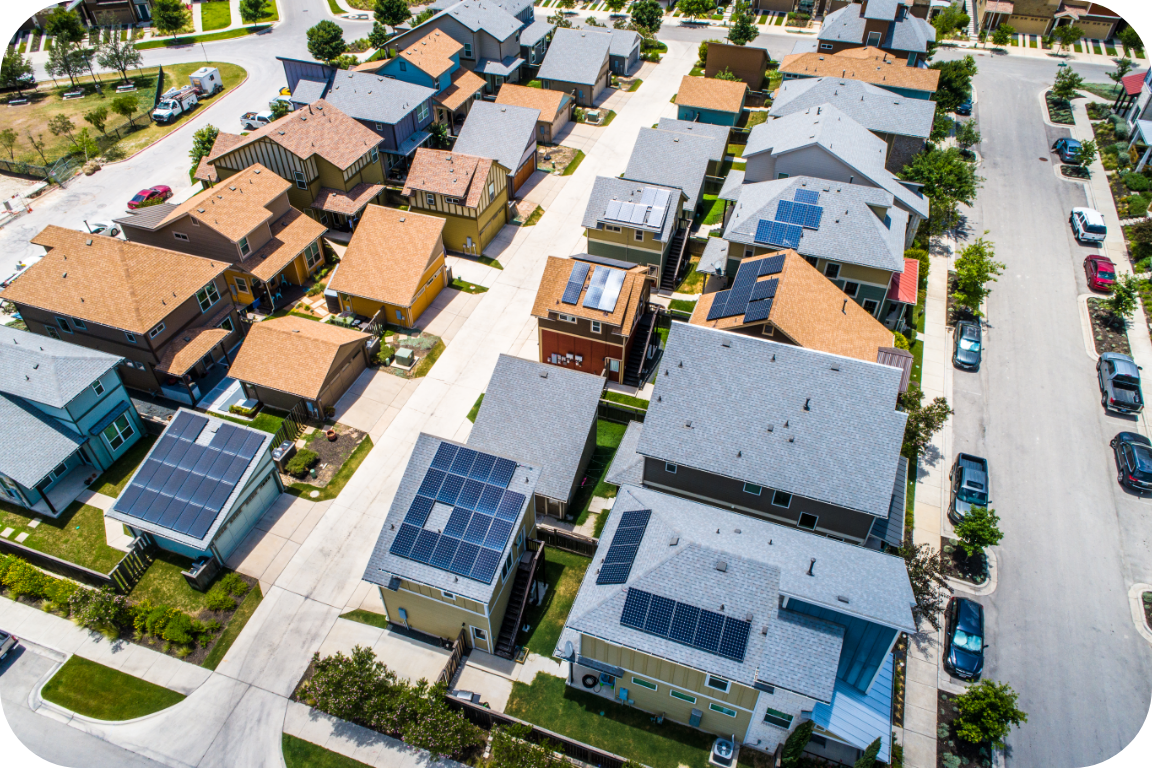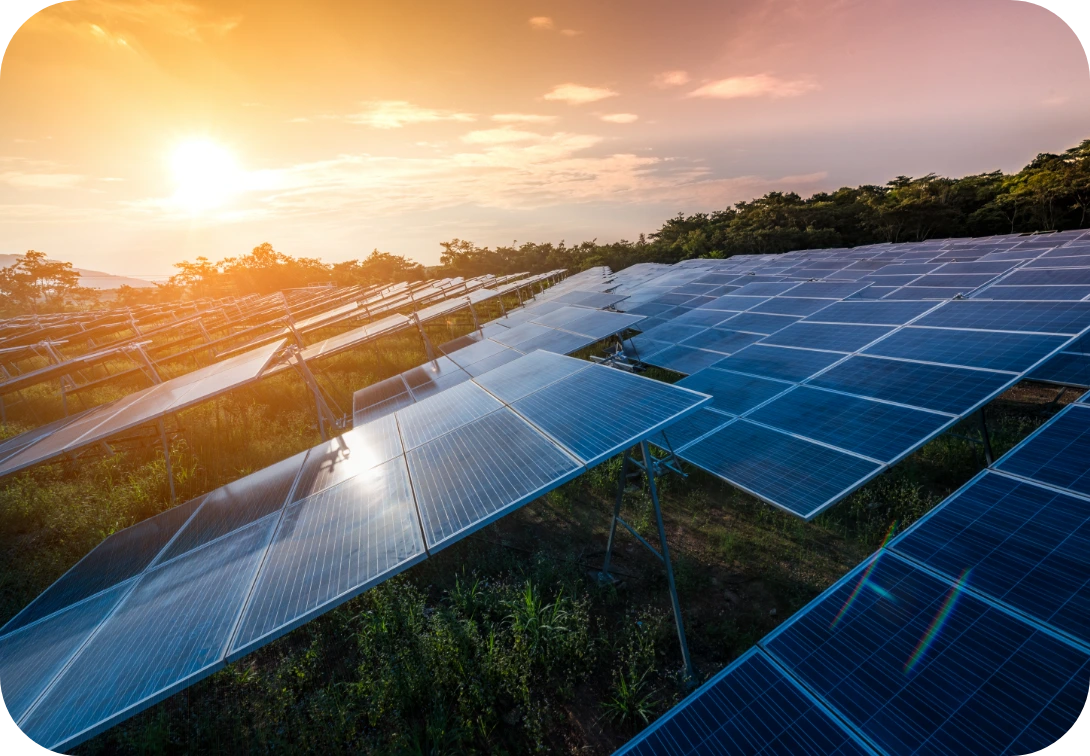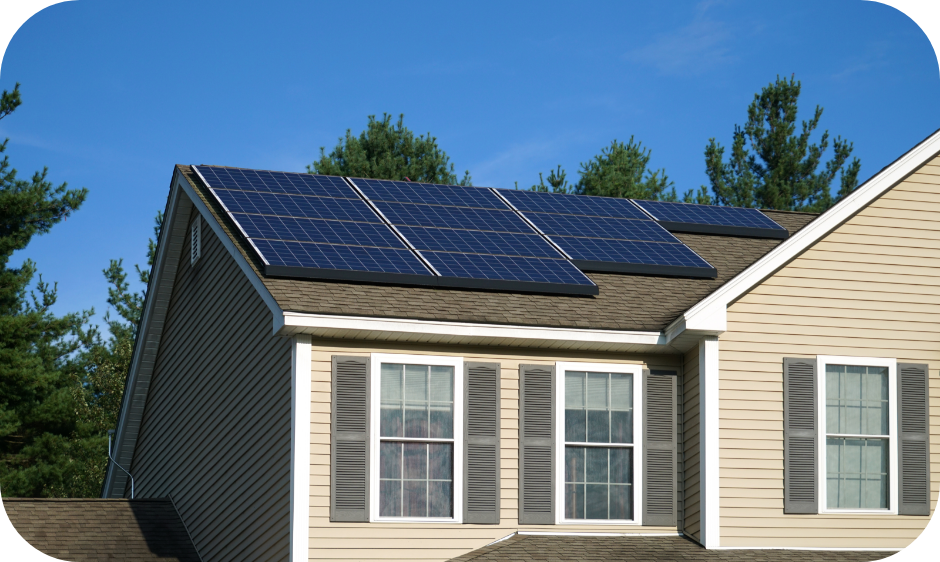The Pros and Cons of Solar Energy


Solar is quickly gaining popularity as many homeowners are looking for ways to reduce their carbon footprint and save money on energy bills. However, like any major investment, it’s important to carefully consider the pros and cons of solar panels before making a decision.
In this post, we’ll discuss the benefits and potential drawbacks of solar energy to help you decide whether or not it’s the right choice for your home.
Benefits of Solar
There are several possible benefits of solar energy, such as cleaner electricity, reduced energy bills, and added home value. If you’re considering installing solar, check out these advantages to get a better idea of whether solar will be a good fit for your home.
Solar Can Reduce Your Energy Bill
One of the main reasons people install solar systems is to save money on their energy bills. By generating your own electricity, you can reduce your dependence on traditional grid energy and lower your utility bills. The amount of money you can save on your utility bills depends on several factors, such as the size of your system, the amount of available sunlight in your location, and your energy consumption. But even with these variations, the overall savings from solar energy may add up to significant cost savings for your home.
While controlling electricity costs is one of the top reasons people install solar, there are several other benefits to consider. Check them out below!


Did you know?

Solar is Clean Energy
Another well-known benefit of solar is that it’s a clean and renewable energy source. You can reduce your carbon footprint by switching to solar because it doesn’t produce harmful emissions and air pollutants. Unlike fossil fuels, which often release toxic greenhouse gases when burned, solar systems generate energy by harnessing the power of the sun’s rays. By installing solar, you can reduce your dependence on grid energy and help reduce dangerous emissions.

Energy Independence
When you install solar, you have more energy independence. By generating your own energy, you can become less reliant on grid electricity and fossil fuels and have greater control over your energy usage. This is especially useful during power outages. If you have a solar system with battery backup, you can keep your lights on even if the grid goes down. Switching to solar also gives you a sense of security and control over your energy usage. By having a reliable energy source, you can plan your usage more effectively. You may also be able to avoid unexpected spikes in your energy bills.

Sell Your Solar Energy Back to the Grid with Net Energy Metering
Solar owners may be able to take advantage of net energy metering. With these programs, solar owners can receive credit for the excess energy their panels produce. When a solar system generates more energy than it needs to power the home, the excess energy is sent back to the grid. The customer then receives a credit on their utility bill. Homeowners can use this credit to offset the cost of grid electricity when panels don’t produce enough energy, such as at night or during cloudy weather.

Added Home Value with Solar Panels
Installing solar panels can increase your home’s overall value. Many potential buyers are willing to pay more for a home with a solar system that’s already installed. Homes with solar systems also typically sell faster than homes without. Solar panels may reduce energy bills, which can make your home more attractive to potential buyers who want a more cost-efficient home. Many people are also looking for more sustainable options, and having solar panels indicates that your home is environmentally friendly.

Solar is a Low-Maintenance Energy Source
Once installed, solar panels require very little maintenance and can continue to produce energy for decades with minimal upkeep. The only maintenance solar panels typically need are cleanings and minor repairs. However, these are generally low-cost and don’t occur regularly. Solar panels are designed to resist corrosion and other types of degradation, which helps ensure they remain reliable for many years. They’re also designed to be durable and may withstand harsh weather conditions, like hail, high winds, and heavy snow loads.

Solar Incentives Can Help Pay for Your Solar System
Many solar incentives are available to help offset the cost of solar and make it more affordable to install a system. Several solar incentives are available, including federal, state, and local incentives, as well as rebates and tax credits. The most well-known of these incentives is The Federal Solar Tax Credit which gives owners a 30% tax credit for the total cost of their system. These incentives help homeowners pay for their system and make solar a more affordable option for many homeowners.
Cons of Solar Energy
While there are many benefits, it’s important to understand both the pros and cons of solar energy to make a more informed decision. Below are some of the most common drawbacks of switching to solar.

Making Silicon Wafers
One of the most significant drawbacks of solar energy is the upfront cost of installing solar panels. Solar systems can be expensive to install, and the price can vary depending on the size of the system and the home’s location. Solar panels are also a long-term investment, and it may take several years to recoup the initial investment through savings on energy costs. However, you can alleviate the burden of a lump-sum solar cost by opting to finance your solar system. Axia offers in-house financing through EnFin, our solar financing partner.

Is a Solar System Right for Your Roof?
Small or odd-shaped roofs can make it difficult to install a system that generates enough power to meet your home’s needs. Small or odd-shaped roofs can also impact the orientation and placement of solar panels, which can affect the system’s efficiency. Many people also hesitate to install solar panels because they don’t consider them visually appealing. If you don’t like the look of solar panels, they might not be a good fit for your home.

Bad Weather Can Interfere with Solar Rays
Another drawback of solar systems is that bad weather, such as cloudy days or heavy rain, can interfere with the amount of sunlight that solar panels can capture. This can decrease the amount of electricity generated by the system, which can impact energy savings. But even in less-than-ideal weather conditions, solar panels can still generate some energy. Solar panels are designed to capture both direct and indirect sunlight, meaning they can still generate power on cloudy days or in indirect sunlight.
Additional Tips
While there are some potential drawbacks, the benefits of solar panels outweigh the negatives for many people. Solar energy is a clean, renewable, low-maintenance energy source that can reduce your carbon footprint and lower energy bills. There are also many government incentives that can help offset the cost of a system. However, it’s still important to consider the upfront costs of solar and if the weather will impact solar production where you live. Ultimately, the decision to install solar panels depends on your individual needs and priorities.
If you decide to install solar, there are a couple of other things to consider before installing your system.

Choosing a Solar Installer
Choosing the wrong solar installer can cause problems with your system and home. For example, an inexperienced installer may not properly install your panels, resulting in a faulty or inefficient system that may even fail prematurely. When choosing an installer, look for a reputable company with years of experience, like Axia Solar. Our experienced professionals are trained to install solar panels safely and effectively. We have the knowledge and certifications necessary to ensure your solar system is installed correctly and performs to the highest standards.
Understand Local Regulations and Permits
Before installing a system, make sure you understand local regulations, permits, and building codes. Get familiar with the specific requirements in your area to meet safety standards, structural guidelines, and electrical codes. Obtain the necessary permits before beginning installation and ensure your system will meet local regulations. However, if you work with a solar company, they may be able to take care of this for you.
Now You Know the Pros and Cons of Solar. Next, Request an Estimate
If you’ve considered the pros and cons of solar panels and are ready for installation, we can help! With our exceptional customer service, high-quality equipment, and years of experience in the industry, we are committed to making the installation process as smooth and stress-free as possible. Contact us today to learn more about how we can help you reap all the benefits of solar!